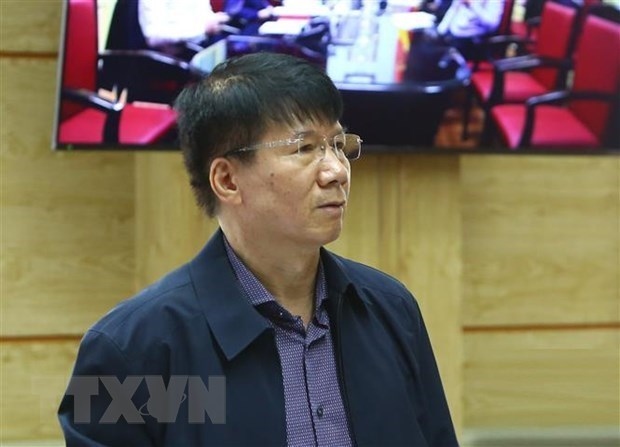Former Deputy Health Minister to stand trial in May for role in fake medicine case
A first-instance trial will start on May 12 on former Deputy Health Minister Truong Quoc Cuong and 13 other defendants involved in the case relating to the trading of counterfeit medicines, lack of responsibilities causing serious consequences; and the abuse of positions and power while on duty.

According to the Hanoi People’s Court, in this case, Cuong and two other defendants – Nguyen Viet Hung, former deputy director of the Health Ministry’s Drug Administration (DAV); and Le Dinh Thanh, a former official of Ho Chi Minh City Customs Department - were charged with lack of responsibility causing serious consequences.
Two former officials of the DAV – Pham Hong Chau and Nguyen Thi Thu Thuy – are accused of abusing positions and power while on duty.
Meanwhile, nine defendants, including six executives and employees of VN Pharma company, two from H&C International Maritime Trading Co. Ltd and a former director general of the Saigon Pharmaceutical Company, are charged with trading counterfeit medicine.
According to the verdict of the Supreme People’s Procuracy, as head of the DAV from 2007 to 2016, Cuong failed to fulfil his responsibility in supervising and inspecting the work of experts in assessing and granting licences for seven kinds of drugs, leading to the approval of dossiers for the import and consumption of the six out of the seven counterfeit drugs, labelled Health 2000, in Vietnam with a total value of over VND148 billion.
After the drugs were imported and consumed in Vietnam, although he received information about the suspected origins of the drugs, Cuong did not give direction to stop their circulation, or recall and destroy the drugs. As a result, domestic medical establishments continued to use supplied counterfeit drugs labelled Health 2000 Canada without clear origins to treat patients at a total value of over VND3.7 billion.
Meanwhile, former DAV deputy director Hung did not perform properly his assigned tasks and duties thus failing to detect and stop wrongdoings of his subordinates in assessing and licensing the drugs.
